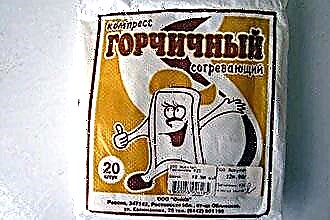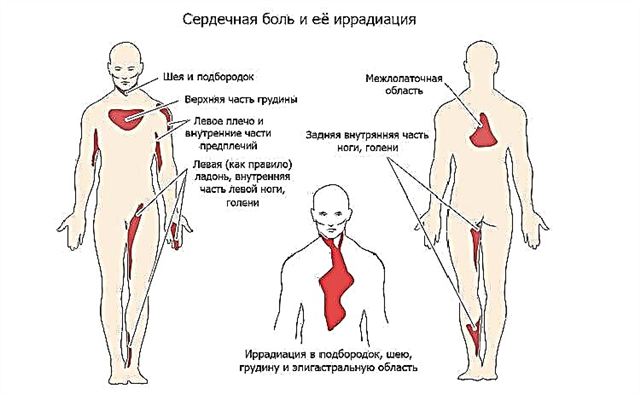 The cause of the disease can be infectious pathogens and non-infectious factors. Among pathogenic microorganisms, it is worth highlighting:
The cause of the disease can be infectious pathogens and non-infectious factors. Among pathogenic microorganisms, it is worth highlighting:
- bacteria (staphylococcus, streptococcus, haemophilus influenzae, chlamydia, mycoplasma);
- viruses (influenza, whooping cough, rubella, chickenpox, rhinovirus, adenovirus);
- fungi (mold, candida).
Note that the disease does not always develop when the body is infected. It all depends on the level of immunity.
Among the factors that increase the risk of laryngitis, it should be noted:
- poor nutrition, hypovitaminosis. Breastfeeding is especially important for children, because with milk they receive immune components to build strong immunity. At an older age, parents need to pay attention to the child's nutrition: limit the use of sweets, flour products, foods with trans fats, and carbonated drinks. You need to enrich the nutritious diet with vitamins, fresh vegetables, fruits, cereals, dairy products and fish;
- hypothermia. Frequent freezing and drafts contribute to a decrease in immunity. In addition, breathing in cold air, getting your feet wet, and living in a cold room increase the body's susceptibility to infection;
- contact with sick peers (in educational institutions, in sports activities);
- severe concomitant pathology (diabetes, thyroid dysfunction, HIV).
Laryngitis symptoms
Symptoms and treatment of the disease should be analyzed by a specialist, because for children, laryngitis is especially dangerous with croup. It is possible to suspect the appearance of inflammation of the larynx by the following clinical signs:
- malaise, moodiness;
- poor appetite, weight loss;
- hoarseness, hoarseness of the voice up to aphonia;
- "Barking" cough (often dry, which gradually becomes wet);
- burning, sore throat;
- febrile hyperthermia.
At an older age, there is a decrease in alertness, ability to work, headaches, drowsiness and muscle aches. To diagnose the disease, an analysis of complaints, the results of a physical examination and examination data is required:
- analysis of blood, urine;
- oropharyngeal smear microscopy and culture;
- PCR;
- laryngoscopy, which allows you to visualize the edematous and hyperemic mucous membrane of the larynx.

Severe complication of laryngitis - croup
At the age of 1.5-3 years, acute laryngitis in a child is often complicated by croup. It develops as a result of narrowing of the lumen of the larynx due to pronounced tissue edema. This is facilitated by the anatomical features of this section of the respiratory tract: a narrower lumen and increased reactivity of nerve fibers to stimuli, which increases the risk of spasm.
Acute laryngitis in children is not complicated by croup. The most susceptible to the pathological condition are children - "lymphatics". Such children have loose, enlarged lymph nodes, hyperplastic tonsils, they often suffer from diathesis and colds.
Croup syndrome is a progressive laryngeal spasm with progressive respiratory failure. A coughing fit can start suddenly or gradually over several hours. In most cases, suffocation develops at night, which requires strict parental control.
Symptomatically, croup is manifested by hoarseness, aphonia, and a “barking” cough that gradually becomes silent. The child becomes restless and begins to cry. Breathing is disturbed even more, a noisy breath appears as a sign of narrowing of the larynx.
Without immediate help, croup develops respiratory distress and increases the risk of death.
The attack can be repeated several nights in a row, so the child needs to sleep in the room with the parents.
We emphasize that the cause of croup can be diphtheria, an allergic reaction, trauma to the larynx, foreign elements in the respiratory tract and spasmophilia, when the level of calcium in the blood decreases.
First aid
Some parents, whose children have not suffered from complicated laryngitis for the first time, know how to prevent the development of croup. According to the first symptoms, they understand that laryngospasm is developing and begin specific treatment. It includes:
- inhalation through a nebulizer with the hormonal drug Pulmicort. Its action is limited to the respiratory tract, provides a rapid decongestant and anti-inflammatory effect;
- antihistamines in the form of a suspension (Loratadin) or tablet form (Zodak);
- inhalation with non-carbonated alkaline water or saline;
- plentiful alkaline drink (warm milk with soda, still mineral water).
The most important thing is to calm the child down, because crying makes breathing difficult, exacerbating hypoxia. If croup develops for the first time, parents need to remain calm. Actions for croup:
- call an ambulance;
- inhale with soda (10 g per liter of hot water). If your child is unable to breathe over a pot of hot solution, you can draw in a bowl of water, add baking soda and breathe in the steam in the bathroom. To distract the children, it is recommended to bring his toys or colored books into the room;
- give an antihistamine (Erius, Cetrin, Suprastin);
- alkaline warm drink (Borjomi, milk with soda, still water).
Upon the arrival of an ambulance, the doctor conducts an initial diagnosis, assesses the severity, after which he can recommend treating the disease in a hospital setting. You cannot refuse this!
Therapeutic tactics
Treatment of acute laryngitis in children should include drug therapy and general recommendations:
- you need to reduce the load on the vocal cords. During the first days, it is necessary to talk as little as possible and not to shout;
- the drinking regime should be increased to 1-1.5 liters per day due to the alkaline liquid. Mineral water (Borjomi) can be mixed with milk (1: 1);
- warm foot baths can reduce blood flow to the larynx, thereby reducing swelling;
- food should not irritate the mucous membrane of the oropharynx. Hot, cold food, spicy, salty foods, carbonated drinks are prohibited;
- humidifying the air in the nursery with a humidifier;
 regular airing, wet cleaning;
regular airing, wet cleaning;- limiting contact with sick people;
- prevention of hypothermia and the influence of drafts.
Warming procedures are not performed with fever above 37.5 degrees and bacterial inflammation.
The treatment also uses:
- inhalation with alkaline still water, saline;
- with a dry cough, Bronholitin, Herbion plantain, Codelak are prescribed;
- for a wet cough, Ambroxol, Acetylcysteine, Mukaltin are recommended;
- inhalations with Ambrobene, Tussamag, Ventolin - depending on the nature of the cough and the presence of bronchospasm;
- antiviral agents (in the form of drops - Aflubin, powder - Otsillococcinum, tablets - Citovir, for inhalation - Interferon);
- antibacterial drugs - Amoxiclav, Zinnat, Sumamed.
With laryngitis in childhood, it is prohibited:
- using a spray to avoid laryngospasm;
- give foods that can become an allergen (citrus fruits, chocolate, honey);
- use hot solutions for inhalation and rinsing the oropharynx;
- give expectorants in the first year of a child's life without first consulting a doctor.
Forecast and prevention
Recovery occurs after two weeks (subject to proper treatment). A residual cough can bother you for another week in the form of a cough. In addition to cereals, bronchitis, pneumonia and the consequences of the generalization of streptococcal infection can be distinguished from complications.
Having achieved recovery, parents should work to strengthen the child's immunity. This will reduce the risk of developing not only laryngitis, but also other infectious and inflammatory pathology of the respiratory system.

 regular airing, wet cleaning;
regular airing, wet cleaning;

